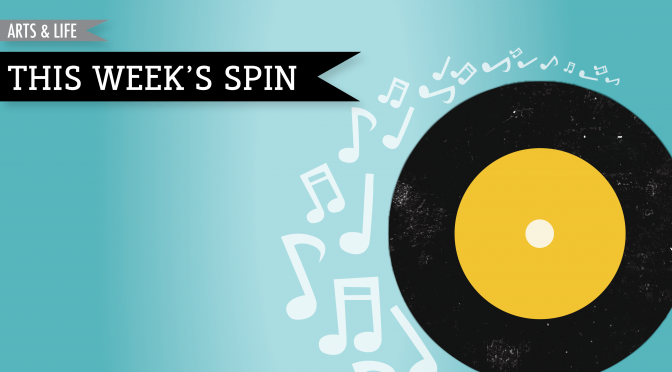
Uplifting beats
By: Kristin Helf, Columnist
For the past few years, I’ve gone out of my way to avoid listening to music that I perceive to be sad. This is not advice that I would give to anyone who writes about music or who otherwise works in the field, unless you face the same problems that I do.
There is such a great amount of lamenting /melancholy/downer music in the world.
I would go as far as to say that if you’re not listening to these songs, you’re not listening to most of the songs that exist— and that’s a lot to miss out on.
There are so many terrific songs, sonically or lyrically, that deal with tragedy, heartache, and all kinds of emotional pain.
But if any of those songs particularly resonate with me, I can’t add them to a playlist or sing along to them (terribly off-key) on my morning drive to campus.
That’s unfortunate, and I know I’m missing out on a lot, but my other option is far worse—wiping away tears in my 8 a.m., and then skipping my 10 a.m. class to melodramatically curl up in a ball on my bed.
I’ll spend the better part of the day in this ball, reaching down into the depths of my soul to emotionally match the sorrow that Adele’s lyrics describe.
Meanwhile, in the far-away corners of my memory, I’ll pull something out from fifth grade and suddenly be sobbing uncontrollably about the time my crush said “hi” to someone who was standing behind me and I—oh my god, how could I be so embarrassing?—I said “hi” back.
Even if that’s not exactly the kind of memories that tend to surface, you get the idea.
I didn’t provide this anecdote to illicit any sympathy (although, if you’re truly sorry about the state of my music-listening habits, I live in Baltimore and am always accepting condolence flowers and heart-shaped boxes of chocolate).
For whatever reason, not all “sad music” is sad to my brain. I can listen to Beach House’s melancholy “Thank Your Lucky Stars” album for hours on end.
But if I hear The Brian Jonestown Massacre’s “David Bowie I Love You (Since I Was Six),” which isn’t nearly as somber as other songs of theirs, a heavy invisible blanket of sadness-nostalgia would surely suffocate me.
I provided said anecdote so that if there’s anyone out there feeling particularly down in these cold and gray winter months, mixing up your music library might help a little.
I’m not saying that constantly blaring “Walking on Sunshine” is the answer to all of your problems (actually, oh my god, that would surely cause more problems), but deleting whatever your version of “David Bowie I Love You” is, could be a healthy step in the right direction towards combating seasonal depression or just regular old gloominess.According to a study called “Crossmodal Transfer of Emotion by Music,” by Nidhya Logeswaran and Joydeep Bhattacharya, the way a piece of music makes us feel can influence how we see neutral faces.
Everyone knows that music has a strong influence on the brain, but here’s a concrete example: after hearing a short piece of music, participants in the study were more likely to interpret a neutral facial expression as happy or sad, depending on how they perceived the tone of the music.
If a certain song makes you feel sad, even the most neutral of surroundings can take on a dismal appearance as well.
Other studies claim that both perceived emotions and felt emotions are related to music-listening. Some people find listening to sad music more enjoyable than others, because they are more easily able to separate the emotions of the song from the emotions they are feeling.
But if you’re like me and have a habit of absorbing all of the tragedy and sorrow of whatever you’re listening to, I recommend taking a break from those crooning ballads of heartbreak and loss, no matter how beautiful they are.
Your mental health should always come first.

